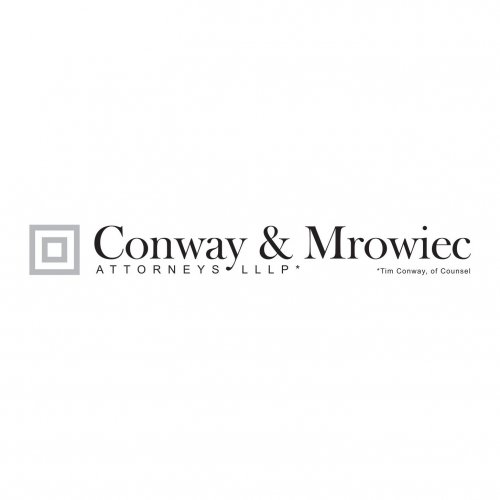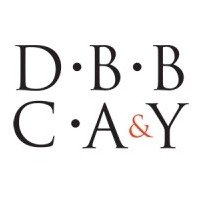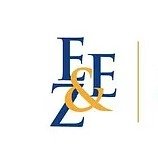Best Employment & Labor Lawyers in Chicago
Share your needs with us, get contacted by law firms.
Free. Takes 2 min.
List of the best lawyers in Chicago, United States
United States Employment & Labor Legal Questions answered by Lawyers
Browse our 5 legal questions about Employment & Labor in United States and read the lawyer answers, or ask your own questions for free.
- Internal investigation of sexual harassment in US
- I’m from [company removed], based in Hong Kong. One of my firm’s US employee reported to internal legal that I have sexually harassed her during my last trip to New York. An internal investigation is kicking off and I will be interviewed by firm legal. Also I have the opportunity... Read more →
-
Lawyer answer by Ascendance International Consulting (A-I-C)
This is a serious matter, and it’s important to approach it with care. Since you have the opportunity to submit a written statement to the internal committee, we strongly recommend that you take time to carefully document your side of...
Read full answer - Do I have a discrimination case
- Everything was good at work then I have an accident and cracked my spine and need surgery and off for a year. They didn’t want me back b.c I was a liability. I was getting written up all the time after I came back. Hit the 2 year mark back... Read more →
-
Lawyer answer by mohammad mehdi ghanbari
Hello, I read your post and I am sorry to hear about the difficult situation you've been through with your employer following your accident. Returning to work after such a serious injury only to face disciplinary action and termination sounds...
Read full answer - Can I still file a lawsuit?
- If I did not file an EEO in a timely manner because I was not aware. Can I still file a lawsuit?
-
Lawyer answer by Islaw - Expert Lawyers
Hi, Typically, you must file an EEO complaint with the Equal Employment Opportunity Commission (EEOC) within 180 days from the date of the discriminatory act. However, if your employer is a state or local government entity, you have 300 days...
Read full answer
United States Employment & Labor Legal Articles
Browse our 8 legal articles about Employment & Labor in United States written by expert lawyers.
- Are Non-Competes Enforceable in New York?
- Non-competes are still legal in New York and most of the United States, but courts apply strict scrutiny and often refuse to enforce broad, form agreements. Governor Hochul vetoed New York's broad non-compete ban (often referenced as S4641A / S3100A) in December 2023, so as of my last update there... Read more →
- The Clean Slate Act NY Background Checks 2026 United States
- Clean Slate laws in the United States automatically seal many low-level misdemeanors and some non-violent felonies after a crime-free period, so employers should expect background reports to show fewer records for many applicants. Employers generally may only ask about and rely on criminal convictions and pending charges that are not... Read more →
- Hiring Contractors in United States NY Freelance Isn't Free Act 2026
- In the United States, most workers are "at will," but federal and state laws strictly regulate wages, overtime, discrimination, retaliation, and union rights. Misclassifying employees as independent contractors can trigger back wages, taxes, penalties, and class actions, often costing many times the original savings. New York's Freelance Isn't Free Act,... Read more →
About Employment & Labor Law in Chicago, United States
Employment and labor law in Chicago encompasses a broad range of practices that regulate the relationship between employees, employers, trade unions, and the government. Chicago, deeply rooted in a historically industrial region, is subject to both federal and state employment laws that define minimum standards for workplace conditions, wage regulations, discrimination laws, and more. Employment and labor laws exist to ensure fair treatment, prevent workplace abuses, and protect both employers and employees. Legal frameworks in this field cover topics such as wage and hour laws, occupational health and safety regulations, anti-discrimination provisions, and rights related to union activities.
Why You May Need a Lawyer
There are numerous situations where individuals may require legal assistance in employment and labor matters in Chicago:
- Unfair termination or wrongful dismissal claims.
- Discrimination based on race, gender, age, disability, or other protected characteristics.
- Disputes regarding wages, overtime pay, or employment benefits.
- Sexual harassment in the workplace.
- Navigating non-compete agreements and other contract-related issues.
- Understanding and implementing collective bargaining agreements.
- Workplace safety or workplace injury concerns.
- Whistleblower protection and retaliation cases.
- Resolving employer-employee conflicts and mediating disputes.
Local Laws Overview
Employment and labor laws in Chicago are influenced by both Illinois state laws and federal laws, such as the Fair Labor Standards Act (FLSA). Key local laws include:
- Minimum Wage: Chicago has its own minimum wage laws which may be higher than the federal minimum wage, and these can vary depending on the size of the employer.
- Paid Sick Leave: Chicago requires employers to provide paid sick leave to employees, accruable based on hours worked.
- Anti-Discrimination: The Illinois Human Rights Act provides protection against discrimination in the workplace, complementing federal protections such as those under the Civil Rights Act.
- Hours and Overtime: State laws mandate certain requirements for overtime pay and regulate the number of hours employees can work within a day or week.
- Worker's Compensation: Illinois state law requires employers to provide worker's compensation insurance to cover employees in the case of work-related injuries or accidents.
Frequently Asked Questions
What is the current minimum wage in Chicago?
As of the latest updates, the minimum wage in Chicago varies based on the size of the business and can be higher than the federal minimum wage. It's important to consult the latest city ordinances for precise figures as these can change annually.
How does the Illinois Human Rights Act protect me at work?
The Illinois Human Rights Act prohibits employment discrimination on the basis of race, color, religion, sex, national origin, ancestry, age, order of protection status, marital status, physical or mental disability, military status, sexual orientation, and gender identity.
What should I do if I've been unfairly dismissed from my job?
If you believe you’ve been wrongfully terminated, you should document the circumstances surrounding your dismissal, gather any relevant documents or communications, and seek legal advice promptly.
Am I entitled to overtime pay?
Employees covered by the Illinois Minimum Wage Law or the Fair Labor Standards Act may be eligible for overtime pay for hours worked beyond 40 hours per week at a rate of one and one-half times the regular rate of pay, unless exempted.
What steps should I take if I experience discrimination at work?
Document instances of discrimination meticulously, report the behavior to your HR department or a supervisor, and, if necessary, file a complaint with the Illinois Department of Human Rights (IDHR) or the U.S. Equal Employment Opportunity Commission (EEOC).
Can my employer retaliate against me for reporting a violation?
No, it is illegal for an employer to retaliate against an employee for reporting violations of employment laws, including discrimination or safety complaints.
What are my rights concerning workplace safety?
Under OSHA regulations and Illinois state law, employees have the right to a safe and healthful workplace. You can request an OSHA inspection if you believe your workplace is unsafe or unhealthful.
How is paid sick leave managed in Chicago?
Chicago’s paid sick leave ordinance allows employees to accrue paid sick leave based on the number of hours worked, capped annually, to deal with personal or immediate family health needs or in cases of domestic violence or sexual offense.
What should I know about non-compete agreements?
Non-compete agreements must be reasonable in time, geographic scope, and the scope of activity restricted. Illinois also enacts specific rules to protect low-wage workers from overly restrictive non-compete covenants.
How can I file a claim for worker’s compensation?
To file a worker’s compensation claim, report the injury to your employer as soon as possible and seek legal assistance to ensure your claim is processed promptly and fairly under Illinois law.
Additional Resources
- Illinois Department of Employment Security (IDES): Offers resources on employment rights and labor laws.
- Chicago Department of Business Affairs and Consumer Protection: Provides information on minimum wage and paid leave regulations.
- U.S. Equal Employment Opportunity Commission (EEOC): Resource for federal discrimination laws and complaints.
- OSHA Illinois Office: Provides workplace safety regulations and supports for reporting violations.
- Illinois Workers' Compensation Commission: Manages worker's compensation claims and disputes.
Next Steps
If you believe you need legal assistance for an employment or labor issue, consider the following steps:
- Document all relevant information and events related to your situation, including any contacts or communications with your employer.
- Research and shortlist employment lawyers or law firms in Chicago who specialize in the specific area relevant to your need.
- Schedule consultations to discuss your case with multiple attorneys to understand your legal options and potential next steps.
- Ensure any lawyer you choose to work with is licensed to practice in Illinois and has good standings with the Illinois State Bar Association.
- Follow up on any recommended actions from your legal counsel and maintain any additional documentation required.
Lawzana helps you find the best lawyers and law firms in Chicago through a curated and pre-screened list of qualified legal professionals. Our platform offers rankings and detailed profiles of attorneys and law firms, allowing you to compare based on practice areas, including Employment & Labor, experience, and client feedback.
Each profile includes a description of the firm's areas of practice, client reviews, team members and partners, year of establishment, spoken languages, office locations, contact information, social media presence, and any published articles or resources. Most firms on our platform speak English and are experienced in both local and international legal matters.
Get a quote from top-rated law firms in Chicago, United States — quickly, securely, and without unnecessary hassle.
Disclaimer:
The information provided on this page is for general informational purposes only and does not constitute legal advice. While we strive to ensure the accuracy and relevance of the content, legal information may change over time, and interpretations of the law can vary. You should always consult with a qualified legal professional for advice specific to your situation.
We disclaim all liability for actions taken or not taken based on the content of this page. If you believe any information is incorrect or outdated, please contact us, and we will review and update it where appropriate.
Browse employment & labor law firms by service in Chicago, United States
Chicago, United States Attorneys in related practice areas.
















